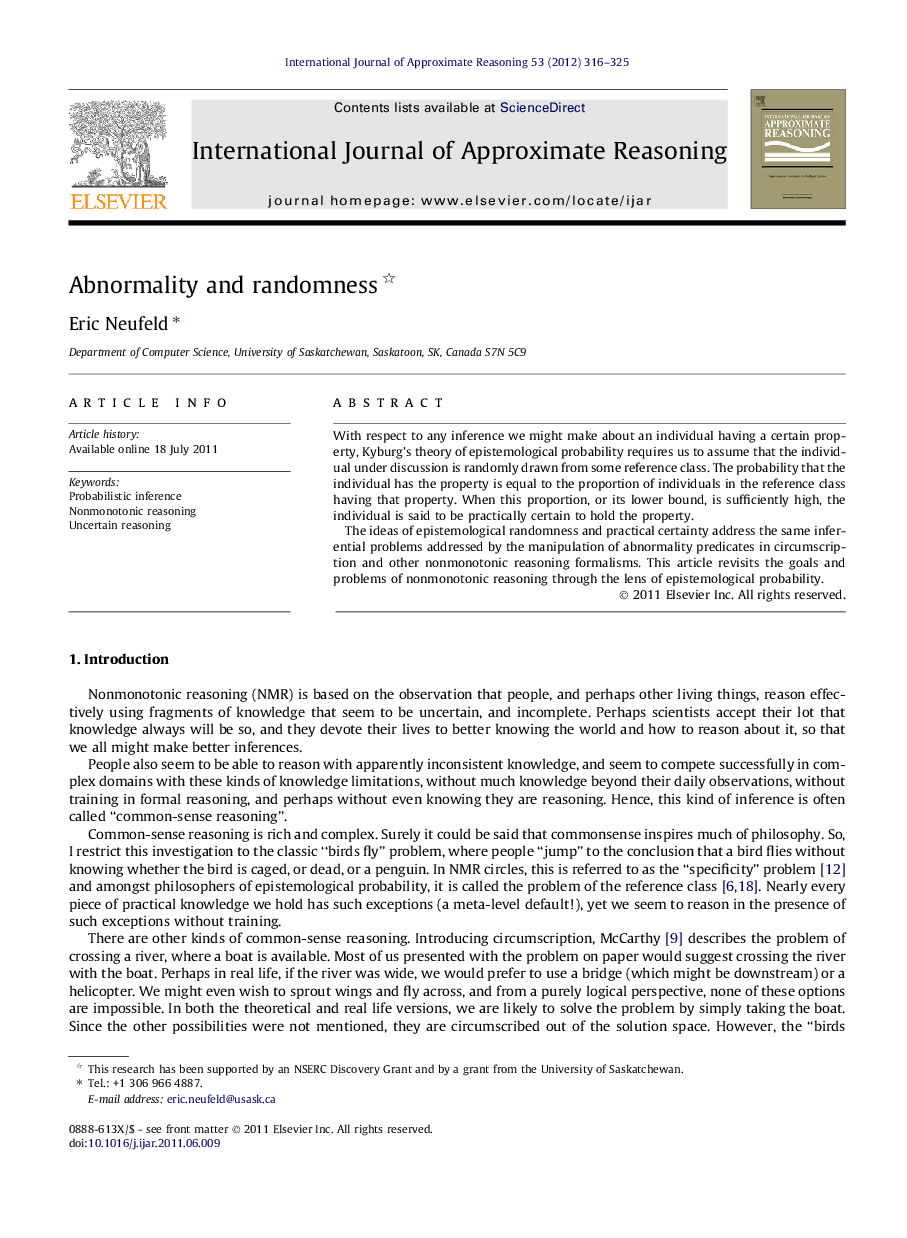| Article ID | Journal | Published Year | Pages | File Type |
|---|---|---|---|---|
| 397425 | International Journal of Approximate Reasoning | 2012 | 10 Pages |
With respect to any inference we might make about an individual having a certain property, Kyburg’s theory of epistemological probability requires us to assume that the individual under discussion is randomly drawn from some reference class. The probability that the individual has the property is equal to the proportion of individuals in the reference class having that property. When this proportion, or its lower bound, is sufficiently high, the individual is said to be practically certain to hold the property.The ideas of epistemological randomness and practical certainty address the same inferential problems addressed by the manipulation of abnormality predicates in circumscription and other nonmonotonic reasoning formalisms. This article revisits the goals and problems of nonmonotonic reasoning through the lens of epistemological probability.
► Nonmonotonic reasoning models knowledge about natural kinds with exceptions. ► Epistemologic probability handles this using randomness and acceptance. ► Some logic-based formalisms use a specificity to approximate randomness. ► However, acceptance seems necessarily to avoid the lottery paradox.
